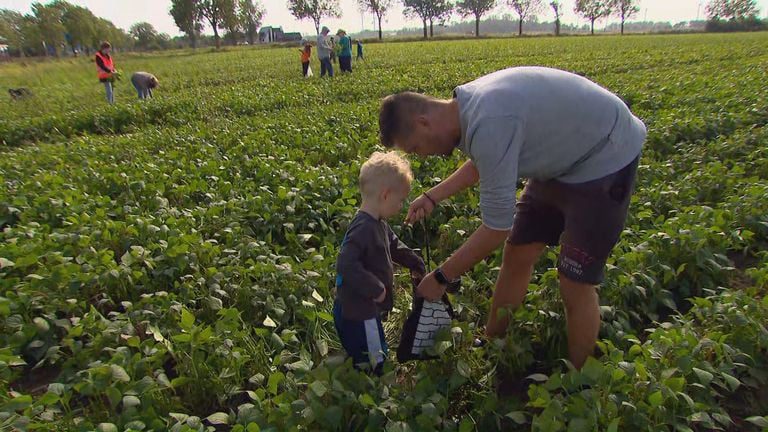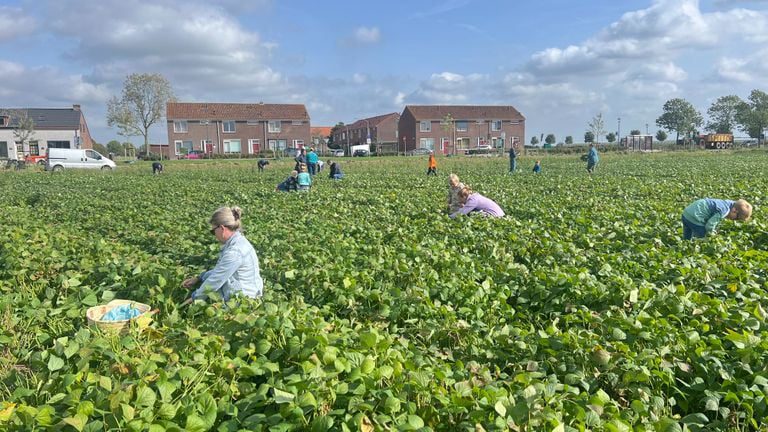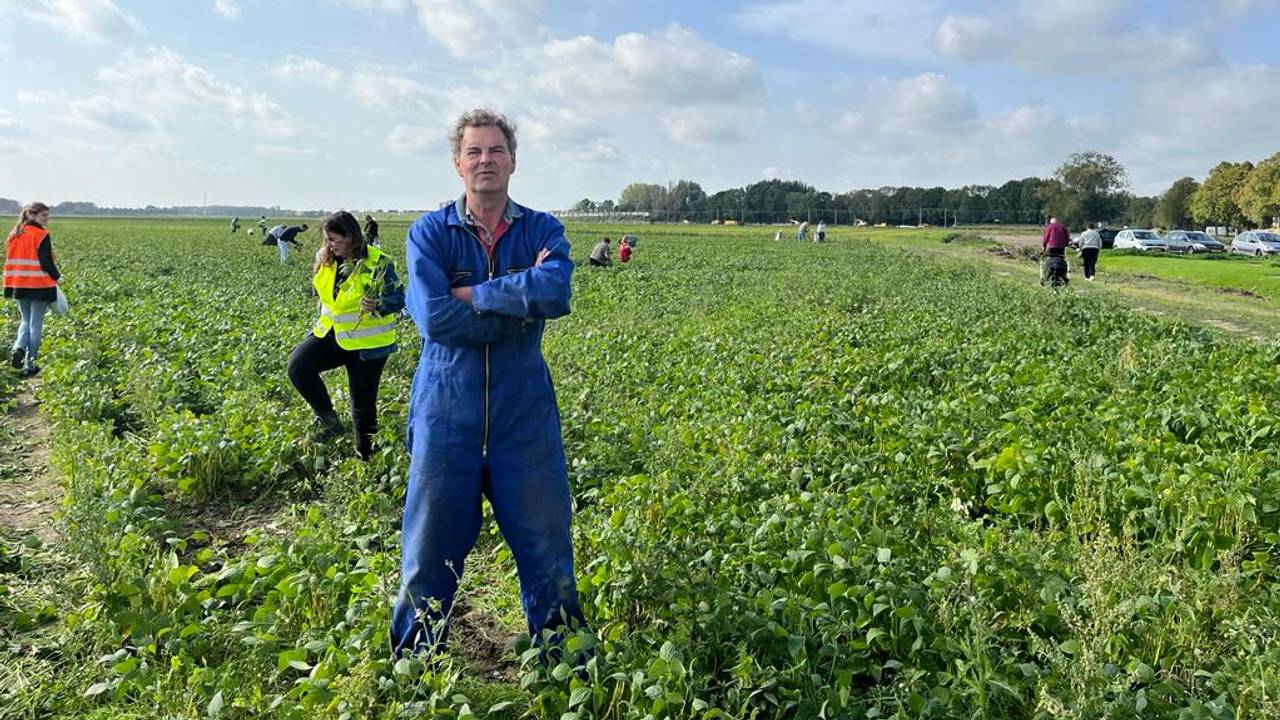For months, farmer Job van de Wiel from Klundert has been looking forward to having his organically grown green beans ready for harvest. But now that the time has come, local supermarkets no longer want to take it from him. That’s why his field on Saturday was filled with locals who were allowed to come in and do their own business for a small price. “Send a double message with this,” Job explains.
Locals are busy at their goop plot on Saturday. Tim stands in the field with his two-year-old son, picking beans. “There are nice green beans among them. It’s a shame they don’t have a place in the supermarket,” says Tim. “It’s a great experience for my son to do this with Dad.”
In addition to green beans, Farmer Job also grows cabbage, peas, carrots, kale and spinach. Three years ago he changed tack and decided to start growing organically. Until now, supermarkets have always bought his vegetables.
But this year, Job suddenly couldn’t sell his organic green beans to local Albert Heijn and Dirks. “Supermarkets charge double for green beans if they’re organic. People aren’t buying them, so supermarkets are throwing them off the shelves.”
“This is how it ends.”
Now he suddenly finds himself in front of a field full of green beans, which he cannot lose on the paving stones. In order not to get rid of them and gain nothing from them, Job called the whole neighborhood. They can come and choose their own beans. “Normal beans sell on the shelves for two euros per kilo, but here they can be picked for one euro per kilo,” says Job.
It does not make the farmer rich. A plot of land usually yields around €25,000. Now Job must be happy if he collects a thousand euros. “It’s a drop in the ocean,” he says. Through this measure, Job hopes to send a “double message”: “On the one hand, the government encourages us to grow organically, but that is where it ends.”
“We see every day how hard work he has to do.”
Many locals responded to Job’s call and came to pick crops themselves on Saturday. For example, in the afternoon, a woman filled some bags with green beans. “Job is my neighbor in the back, and we see every day how hard he works,” she says. “The fact that this is now here and not taken from him is a financial blow to him. With all the food waste that already exists in the world, it would be a shame to leave it alone.”
Will you also choose organic products next time you go shopping? “I’m quite willing to pay more. But the question is does the farmer make money from it or from the supermarket. It’s more expensive on the shelves, but what goes to the farmer? I’d like to know that first.”
Goop is happy to have so many locals coming. “I find the feedback heartwarming,” the farmer concludes. “This encourages me to continue.”



“Lifelong zombie fanatic. Hardcore web practitioner. Thinker. Music expert. Unapologetic pop culture scholar.”










